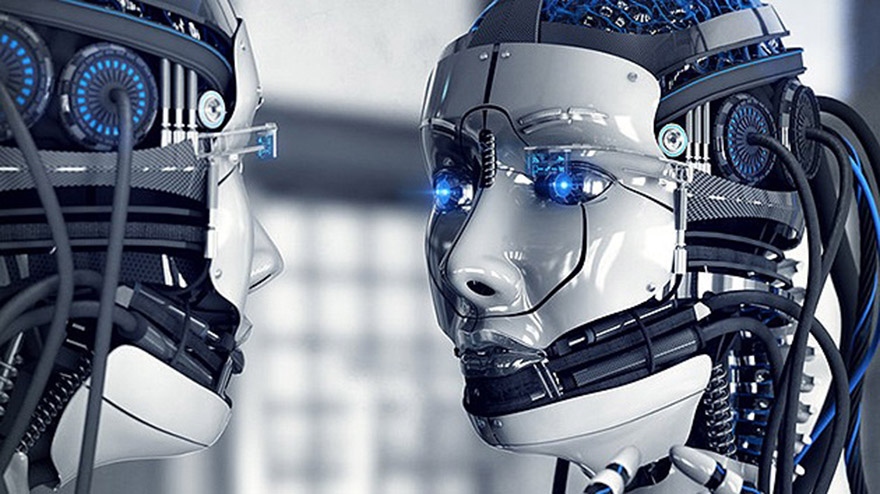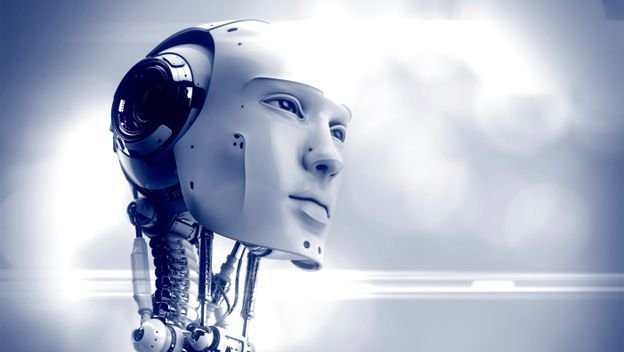¿Es peligrosa de verdad la inteligencia artificial? Is artificial intelligence really dangerous?
La inteligencia artificial tiene varias voces en contra y otras tantas a favor. ¿De verdad es peligrosa la inteligencia artificial, o se tratan de simples historias de miedo? Artificial intelligence has several voices against and many others in favor. Is artificial intelligence really dangerous, or are they simply scary stories?
Buena parte del futuro de la tecnología está en la inteligencia artificial. Pronto los ordenadores no sólo tendrán la capacidad para llegar a resultados por sí mismos, también serán capaces de razonar o incluso pensar. Los ordenadores dejarán de ser cajas tontas que sigan nuestras órdenes para generar las órdenes por sí solas. Pero todo esto podría no ser tan bueno como parece, según varias voces en contra. Personas famosas como Elon Musk afirman que una inteligencia artificial sin regular podría suponer la destrucción de la humanidad. Esas fueron sus palabras exactas: un riesgo para la civilización humana. Much of the future of technology lies in artificial intelligence. Soon computers will not only have the ability to come up with results for themselves, they will also be able to reason or even think. Computers will stop being silly boxes that follow our orders to generate the orders by themselves. But all this may not be as good as it seems, according to several voices against. Famous people like Elon Musk claim that unnatural artificial intelligence could mean the destruction of humanity. Those were his exact words: a risk to human civilization.

Inteligencia artificial: ¿peligro o nada de lo que preocuparse?
Artificial intelligence: danger or nothing to worry about?
No es un relato sacado de ‘Yo, Robot’, sino de unas declaraciones del fundador de PayPal, Tesla Motors y SpaceX. Elon Musk reconoce que la Inteligencia Artificial será un avance enorme, pero tiene miedo de las posibles consecuencias. Cree que necesitamos pararnos un momento y regularla, antes de continuar con su desarrollo. Musk no es la única voz que afirma lo mismo. Stephen Hawking, por ejemplo se cuestiona si será la salvadora o la asesina de la humanidad. Incluso Bill Gates, el hombre más rico en el mundo y fundador de Microsoft, pregunta por qué algunos no se preocupan por esto. Todo esto contrasta con las declaraciones de John Giannandrea, presidente de inteligencia artificial de Google. Afirma, según ha recogido Bloomberg, que no está preocupado por un “apocalipsis de la inteligencia artificial”. Comenta que Google ha invertido en seguridad y ética, pero que las mayores preocupaciones están muy exageradas. It is not a story taken from 'Yo, Robot', but from statements by the founder of PayPal, Tesla Motors and SpaceX. Elon Musk acknowledges that Artificial Intelligence will be a huge breakthrough, but he is afraid of the possible consequences. He believes that we need to pause for a moment and regulate it, before continuing its development. Musk is not the only voice that says the same thing. Stephen Hawking, for example, questions whether he will be the savior or murderer of mankind. Even Bill Gates, the richest man in the world and founder of Microsoft, asks why some do not care about this. All this contrasts with the statements of John Giannandrea, president of Google's artificial intelligence. He says, according to Bloomberg, that he is not worried about an "apocalypse of artificial intelligence". He comments that Google has invested in security and ethics, but that the biggest concerns are greatly exaggerated.

¿Qué nos espera en inteligencia artificial?
What awaits us in artificial intelligence?
John Giannandrea tiene razón en una cosa: no vamos a saltar de repente de una inteligencia artificial en desarrollo a un superordenador con inteligencia ilimitado. Todavía le queda mucho por avanzar a la inteligencia artificial para llegar al punto de que sea tan poderosa. Hablamos mucho sobre ella y sus posibilidades, pero sigue en pañales. Además, y como bien destaca The Verge, existen peligros a los que deberíamos enfrentarnos antes. Por ejemplo, la posibilidad, de un gobierno usando la IA para espiarnos, o la idea de que nos dejen sin trabajo, son mucho más reales. No es sólo la inteligencia artificial como tal, tiene mucho que ver quién la pone en práctica. Quizás no debería preocuparnos tanto la existencia de la inteligencia artificial como tal, sino el cómo se utiliza y quién lo hace. Aunque eso no significa que la IA sí pueda llevar a un problema por sí sola. ¿Qué opináis al respecto? John Giannandrea is right about one thing: we are not going to suddenly jump from a developing artificial intelligence to a supercomputer with unlimited intelligence. It still has much to advance artificial intelligence to get to the point that it is so powerful. We talked a lot about her and her possibilities, but she's still in her nappies. In addition, and as The Verge points out, there are dangers that we should face earlier. For example, the possibility of a government using AI to spy on us, or the idea of being left out of work, is much more real. It is not only artificial intelligence as such, it has a lot to see who puts it into practice. Perhaps we should not worry so much about the existence of artificial intelligence as such, but how it is used and who does it. Although that does not mean that AI can lead to a problem on its own. What do you think about it?